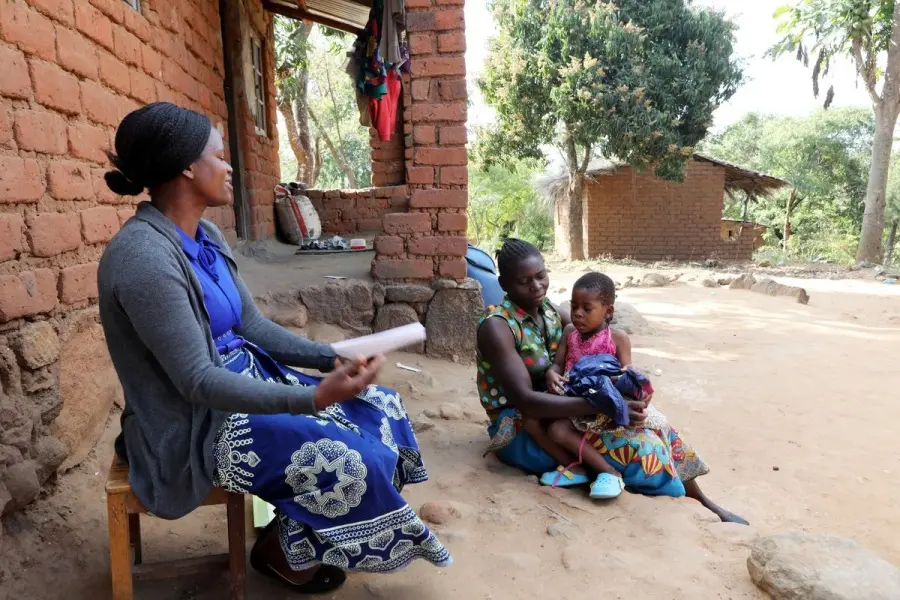6 Global Health Facts That May Surprise You

From maternal health to tuberculosis, glaring inequities persist
Posted on July 24, 2023

In the past 50 years, global health has seen medical and scientific breakthroughs, from the eradication of smallpox to dramatic declines in AIDS-related deaths to the approval of the first-ever malaria vaccine.
But glaring inequities persist—realities that are as alarming as they are steeped in history, namely centuries of colonialism and war that left countries in the Global South impoverished and millions worldwide without access to health care.
In many communities where PIH works, the nearest clinic is several hours away, only accessible by dirt roads. Doctors must prescribe medications that aren’t available in their community or even countrywide. Mothers must give birth by candlelight when the power goes out.
For more than 30 years, PIH has been on the forefront of a global movement to fight these inequities—training thousands of local doctors and nurses, funneling resources to government-run hospitals and clinics, enlisting community members to provide basic health services, and advocating for policy change at the local, national, and global levels.
Despite the immense progress of the past decades, PIH’s fight for global health equity remains as crucial now as ever.
Below are six facts that highlight the startling extent of global health inequity:
1. Sierra Leone—a country of 8 million people—has only 3 psychiatrists.
Sierra Leone, a West African nation that has endured colonialism, the trans-Atlantic slave trade, and civil war, has only 3 psychiatrists for its population of over 8 million. The country also has only one hospital dedicated to mental health care: PIH-supported Sierra Leone Psychiatric Teaching Hospital.
2. 1 in 6 adults in Mexico live with diabetes.
Diabetes is one of the leading causes of death in Mexico. PIH, known locally as Compañeros En Salud, is enlisting the help of community health workers to respond to diabetes and other noncommunicable diseases in the rural, mountainous Sierra Madre of Chiapas. Community health workers are local residents hired and trained to provide medications, emotional support, accompaniment to appointments, and other health services.
3. Before 2011, cancer care was virtually nonexistent in Rwanda.
Just a little over a decade ago, cancer care was nearly nonexistent in Rwanda, leaving patients with nowhere to go for care and treatment, including chemotherapy. In 2011, PIH broke ground on Butaro District Hospital in partnership with the Ministry of Health and, the following year, opened Butaro Cancer Center of Excellence. These programs have since enrolled more than 14,000 patients and provided care for over 20 types of cancer.
4. 1 in 4 people in the world have tuberculosis.
Tuberculosis is the world’s deadliest infectious disease, despite treatment being available in wealthy countries. As part of the endTB project, PIH has continued its decades-long TB work by helping patients access shorter, less toxic treatment regimens through observation studies and clinical trials. The project works in 17 countries where the multidrug-resistant form of the disease is prevalent, including Peru, Lesotho, and Kazakhstan.
5. 50% of people around the world lack access to essential health care.
At least half of the world’s population lacks access to basic health services, such as immunization and family planning. PIH’s medical care and social support are crucial to helping patients access the care they need, from community health workers knocking on doors to mobile clinics visiting rural communities. Also critical is PIH’s partnership with governments to strengthen public health systems and advocacy at the local, national, and global levels.
6. 94% of maternal deaths occur in low- and lower middle-income countries.
The vast majority of maternal deaths happen in the Global South. In Sierra Leone, for example, a woman has a 1 in 20 lifetime risk of dying in pregnancy or childbirth. These inequities make maternal health vital to PIH’s work around the world, from lifesaving c-sections to facility-based deliveries to dignified childbirth with traditional midwives.
Originally published on pih.org



